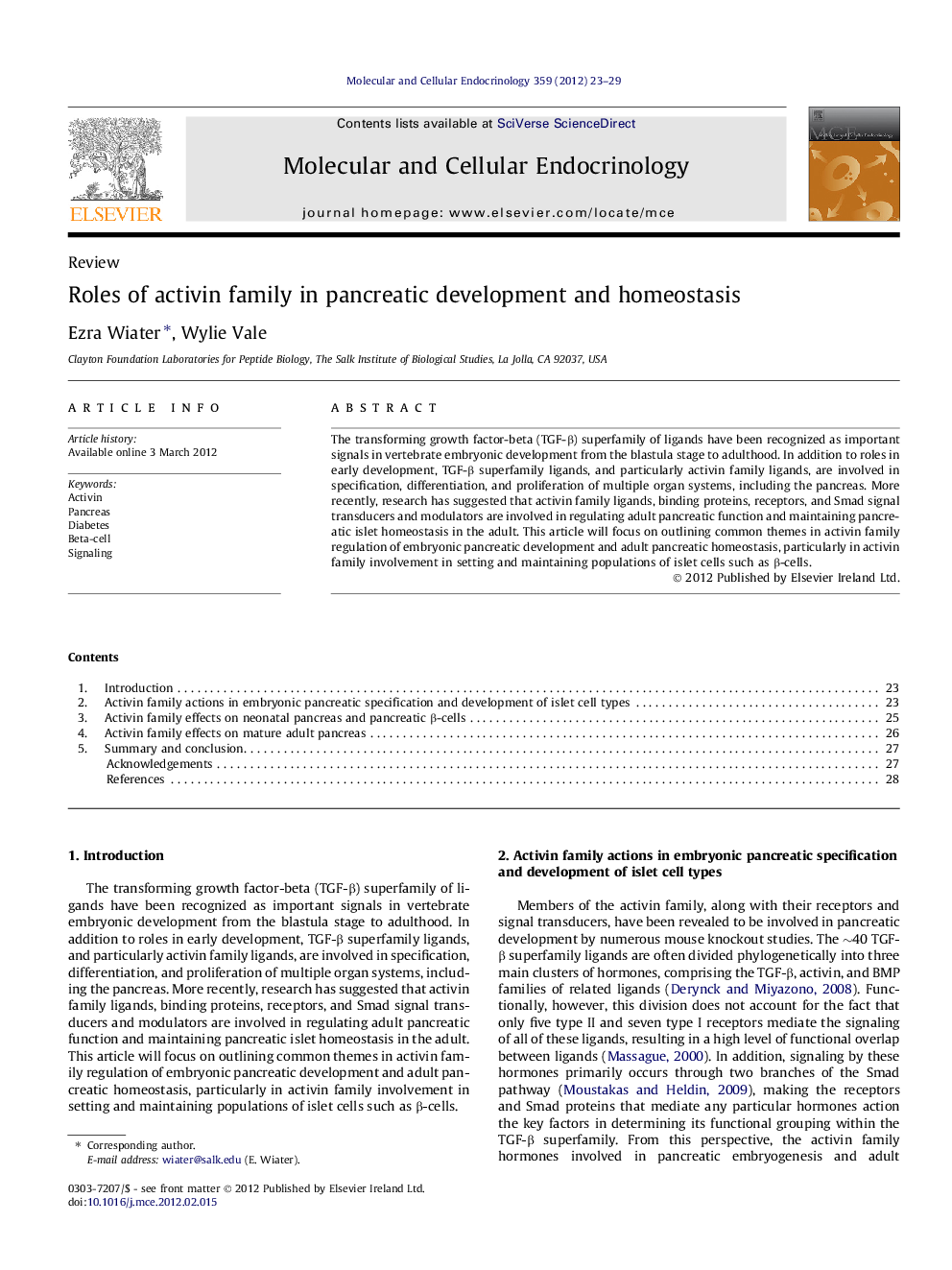| Article ID | Journal | Published Year | Pages | File Type |
|---|---|---|---|---|
| 2196355 | Molecular and Cellular Endocrinology | 2012 | 7 Pages |
The transforming growth factor-beta (TGF-β) superfamily of ligands have been recognized as important signals in vertebrate embryonic development from the blastula stage to adulthood. In addition to roles in early development, TGF-β superfamily ligands, and particularly activin family ligands, are involved in specification, differentiation, and proliferation of multiple organ systems, including the pancreas. More recently, research has suggested that activin family ligands, binding proteins, receptors, and Smad signal transducers and modulators are involved in regulating adult pancreatic function and maintaining pancreatic islet homeostasis in the adult. This article will focus on outlining common themes in activin family regulation of embryonic pancreatic development and adult pancreatic homeostasis, particularly in activin family involvement in setting and maintaining populations of islet cells such as β-cells.
► Genetic loss of activin-family hormones and receptors disrupt pancreas development. ► Transgenes that altering activin signaling in β-cells disrupt pancreas development and funtion. ► Activin-family hormones regulate islet cell function in neonatal and adult pancreas. ► Disrupted activin signaling in adults alters glucose metabolism and insulin release.
